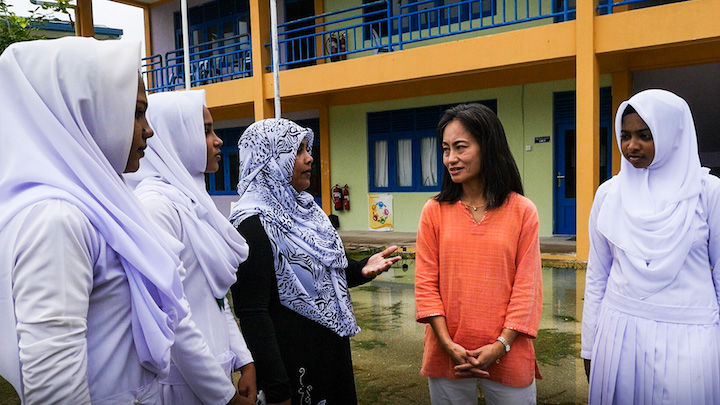Reaching beyond the glass ceiling
On International Women’s Day, UN resident coordinator Shoko Noda offers a personal insight into issues of gender equality she has faced over the course of her personal and professional life.

08 Mar 2017, 09:00
From Japan to the Maldives: the Need to Empower Women
Halfway through fourth grade, I opened my report card and saw that my teacher had given me a C for ‘behavior’.
Understandably, it shocked my parents. I had always gotten top grades in class. I was taken aback too. It was when I got the same grade the following semester, and read my teacher’s remarks, that the truth dawned on me. My teacher had written: Shoko is finally improving her selection of words, and has started to behave more like a gentle girl.
I think among other things, I had upset the teacher by climbing trees with the boys during PE class. I was also quite independent-minded and expressed my views in maybe not-so-polite terms. My parents were quite happy when, with a new teacher for the next two years, I went back to getting A grades for good behaviour.
Become a member
Get full access to our archive and personalise your experience.
Already a member?
Discussion
No comments yet. Be the first to share your thoughts!
No comments yet. Be the first to join the conversation!
Join the Conversation
Sign in to share your thoughts under an alias and take part in the discussion. Independent journalism thrives on open, respectful debate — your voice matters.




